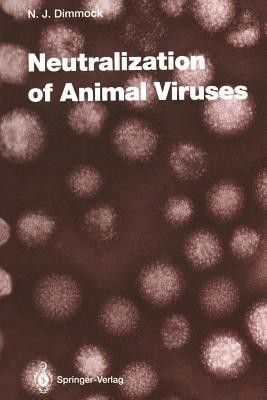
- We will send in 10–14 business days.
- Author: Nigel J Dimmock
- Publisher: Springer
- Year: 2011
- Pages: 149
- ISBN-10: 3642778518
- ISBN-13: 9783642778513
- Format: 15.6 x 23.4 x 0.9 cm, softcover
- Language: English
- SAVE -10% with code: EXTRA
Reviews
Description
Understanding neutralization is particularly relevant to an appreciation of the interaction between a virus and its antibody-synthesizing host since it is likely that viruses and the antibody system have evolved in response to reciprocally imposed selective pressures. Neutralization of viruses which only infect non-antibody-synthesizing hosts, while of considerable interest from of points of view is de facto without any such evolutionary signifi- a number cance. In this second category are viruses of plants, invertebrates, vertebrates below fish in the evolutionary scale which do not synthesize antibody and most bacteria. Viruses of organisms parasitic on or commensal with antibody- synthesizing vertebrates, such as enteric bacteria, protozoa or metazoan parasites, will be in contac, with antibody at some stage of their existence, and arthropod-borne viruses which have a higher vertebrate as second host are obviously bona fide members of the first category. There is an urgent need to understand the principles by which antibodies inactivate virus infectivity since, at present, we are unable to rationally construct effective vaccines against new agents like the human immuno- deficiency viruses or to improve existing vaccines. The intention of this volume is to comprehensively review neutralization and where possible to construct a unifying theory which can be tested by experimentation.
EXTRA 10 % discount with code: EXTRA
The promotion ends in 17d.10:07:13
The discount code is valid when purchasing from 10 €. Discounts do not stack.
- Author: Nigel J Dimmock
- Publisher: Springer
- Year: 2011
- Pages: 149
- ISBN-10: 3642778518
- ISBN-13: 9783642778513
- Format: 15.6 x 23.4 x 0.9 cm, softcover
- Language: English English
Understanding neutralization is particularly relevant to an appreciation of the interaction between a virus and its antibody-synthesizing host since it is likely that viruses and the antibody system have evolved in response to reciprocally imposed selective pressures. Neutralization of viruses which only infect non-antibody-synthesizing hosts, while of considerable interest from of points of view is de facto without any such evolutionary signifi- a number cance. In this second category are viruses of plants, invertebrates, vertebrates below fish in the evolutionary scale which do not synthesize antibody and most bacteria. Viruses of organisms parasitic on or commensal with antibody- synthesizing vertebrates, such as enteric bacteria, protozoa or metazoan parasites, will be in contac, with antibody at some stage of their existence, and arthropod-borne viruses which have a higher vertebrate as second host are obviously bona fide members of the first category. There is an urgent need to understand the principles by which antibodies inactivate virus infectivity since, at present, we are unable to rationally construct effective vaccines against new agents like the human immuno- deficiency viruses or to improve existing vaccines. The intention of this volume is to comprehensively review neutralization and where possible to construct a unifying theory which can be tested by experimentation.


Reviews